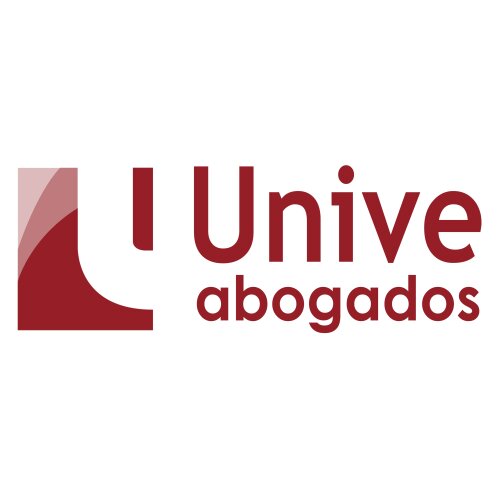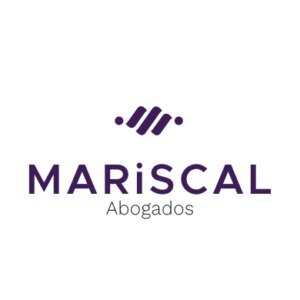Best Nonprofit & Charitable Organizations Lawyers in Madrid
Share your needs with us, get contacted by law firms.
Free. Takes 2 min.
List of the best lawyers in Madrid, Spain
About Nonprofit & Charitable Organizations Law in Madrid, Spain
Nonprofit and charitable organizations in Madrid, Spain, are an integral part of the social and economic fabric. These organizations are formed to pursue a specific purpose, be it social, educational, charitable, cultural, or scientific, without the intention of distributing profits to members or directors. The legal framework governing these entities is designed to ensure transparency, accountability, and sustainability, enabling them to contribute effectively to the public good. Madrid, like the rest of Spain, follows national guidelines but also has regional regulations that influence how nonprofit organizations operate.
Why You May Need a Lawyer
Engaging with a lawyer for nonprofit and charitable organizations can be essential in various situations. Common scenarios include:
- Establishing a New Nonprofit: Legal guidance is often necessary to navigate the registration process and ensure compliance with both national and regional laws.
- Tax Compliance: Nonprofits may qualify for special tax statuses; a lawyer can help you understand the application process and maintain compliance.
- Operational Challenges: Legal advice can clarify employment laws, contract negotiations, and safeguarding intellectual property.
- Regulatory Audits: Assistance from a legal expert is crucial during regulatory checks to ensure all practices meet required standards.
- Conflict Resolution: Lawyers can mediate and resolve disputes involving internal governance, stakeholder issues, or donor agreements.
Local Laws Overview
The legal framework for nonprofits and charitable organizations in Madrid is influenced by a combination of Spanish national law and local regulations. Key aspects include:
- Registration Process: All nonprofits must register with the National Registry of Associations or the Registry of Foundations.
- Legal Structure: Common forms include associations and foundations, each with distinct legal obligations and governance structures.
- Fiscal Obligations: Nonprofits may apply for tax exemptions but must adhere to strict guidelines to retain these benefits.
- Funding and Donations: Clear rules exist regarding fundraising, grant applications, and the use of funds, ensuring transparency and accountability.
- Governance: There are requirements for board composition, conflict of interest policies, and annual reporting to ensure good governance.
Frequently Asked Questions
What is the first step in forming a nonprofit organization in Madrid?
Initiating the formation involves choosing the type of entity (association or foundation) and drafting the governing documents, such as statutes or bylaws, followed by registration with the relevant authority.
Can nonprofits operate at both national and local levels in Spain?
Yes, nonprofits can operate across different regions and communities, but they must comply with both national laws and local regulations applicable to each area.
Are nonprofit organizations in Madrid eligible for tax exemptions?
Yes, they can apply for special tax statuses if they meet certain criteria outlined by Spanish law, which includes promoting public benefit activities.
What reporting requirements must nonprofits in Madrid fulfill?
Nonprofits are required to provide annual financial reports and activity summaries to maintain transparency and accountability to stakeholders and the government.
What are the requirements for a nonprofit's board of directors?
Board composition regulations require that board members have specific qualifications and maintain independence to avoid conflicts of interest.
How can nonprofits in Madrid receive funding?
Funding can be obtained through donations, grants, membership fees, and fundraising events. Regulations govern fundraising activities to ensure the ethical use of funds.
Is it necessary for nonprofits to have a legal advisor?
While not mandatory, having a legal advisor can be invaluable in navigating complex legal requirements, ensuring operational compliance, and resolving disputes.
Can a foreigner establish a nonprofit in Madrid?
Yes, foreigners can establish nonprofits in Madrid, but they will need to comply with both Spanish national laws and any relevant regional regulations.
What legal protections are available for nonprofit volunteers?
Volunteers are provided protections under Spanish law, ensuring safe working conditions and the right to participate in training and other development activities.
How do nonprofits handle intellectual property issues?
Nonprofits must manage intellectual property carefully, ensuring trademarks, copyrights, and patents are secured and respected as per the law.
Additional Resources
For those seeking further assistance, several resources are available:
- Spanish Association of Foundations (Asociación Española de Fundaciones): Offers guidance and resources for foundations in the country.
- Ministry of Justice (Ministerio de Justicia): Provides information on legal requirements and registrations.
- Madrid Community Fund: A regional body that aids in funding and support for local nonprofits.
- Fundación Lealtad: Offers assessments and reviews of nonprofit organizations, enhancing transparency.
Next Steps
If you require legal assistance in matters relating to nonprofit and charitable organizations in Madrid, it's recommended to:
- Consult Legal Professionals: Seek advice from lawyers specialized in nonprofit law to better understand your obligations and options.
- Contact Professional Associations: Engage with local associations or legal aid services for expert advice and networking opportunities.
- Engage a Consultant: Consider hiring consultants who specialize in nonprofit operations for practical and tailored advice.
- Attend Workshops: These can be an invaluable resource to learn about the legal landscape and best practices for managing a nonprofit.
Lawzana helps you find the best lawyers and law firms in Madrid through a curated and pre-screened list of qualified legal professionals. Our platform offers rankings and detailed profiles of attorneys and law firms, allowing you to compare based on practice areas, including Nonprofit & Charitable Organizations, experience, and client feedback.
Each profile includes a description of the firm's areas of practice, client reviews, team members and partners, year of establishment, spoken languages, office locations, contact information, social media presence, and any published articles or resources. Most firms on our platform speak English and are experienced in both local and international legal matters.
Get a quote from top-rated law firms in Madrid, Spain — quickly, securely, and without unnecessary hassle.
Disclaimer:
The information provided on this page is for general informational purposes only and does not constitute legal advice. While we strive to ensure the accuracy and relevance of the content, legal information may change over time, and interpretations of the law can vary. You should always consult with a qualified legal professional for advice specific to your situation.
We disclaim all liability for actions taken or not taken based on the content of this page. If you believe any information is incorrect or outdated, please contact us, and we will review and update it where appropriate.
















